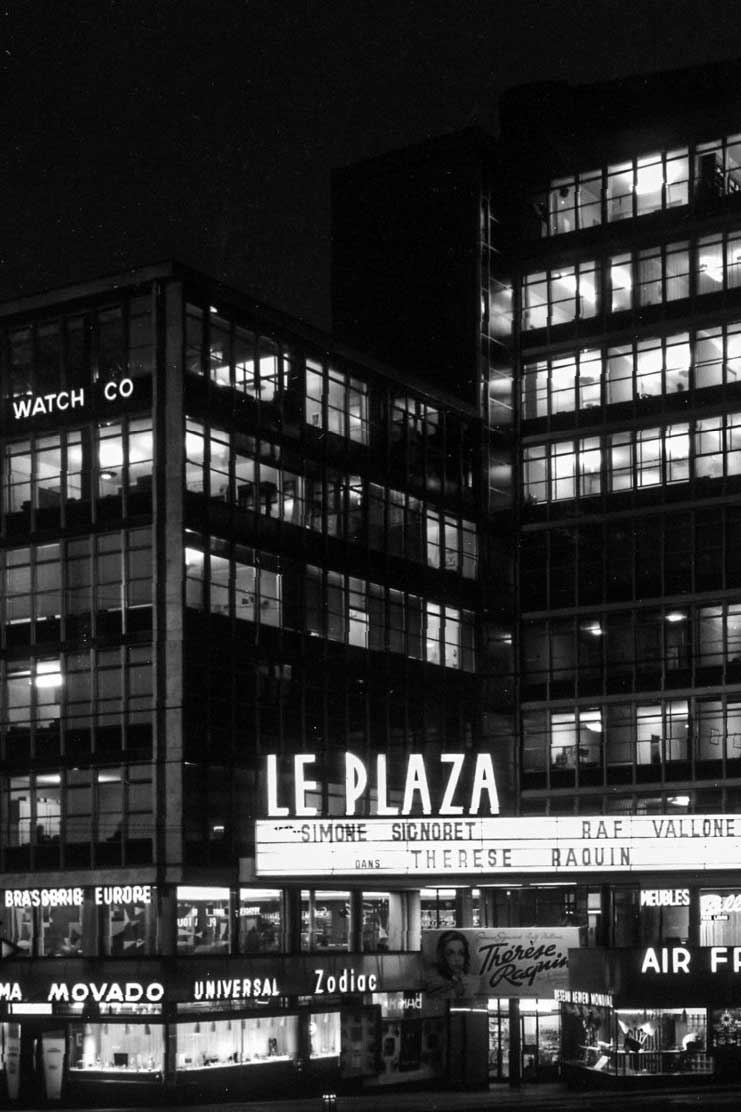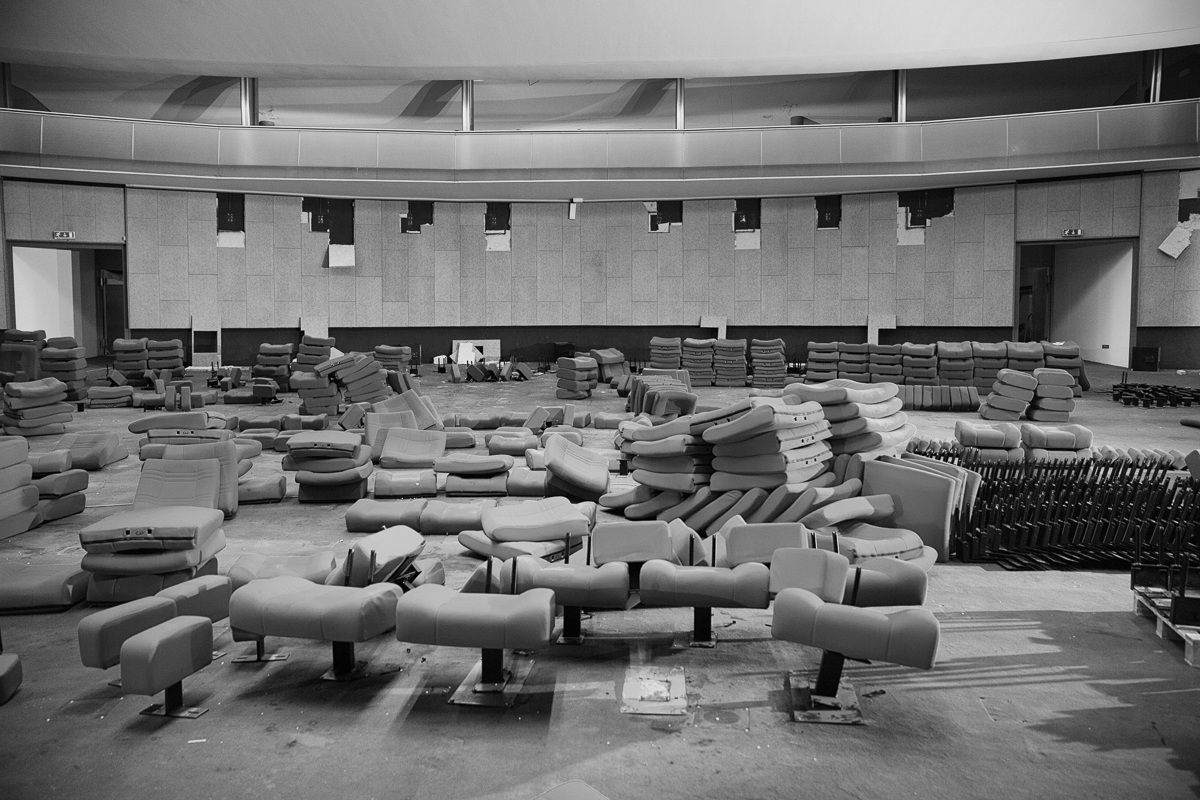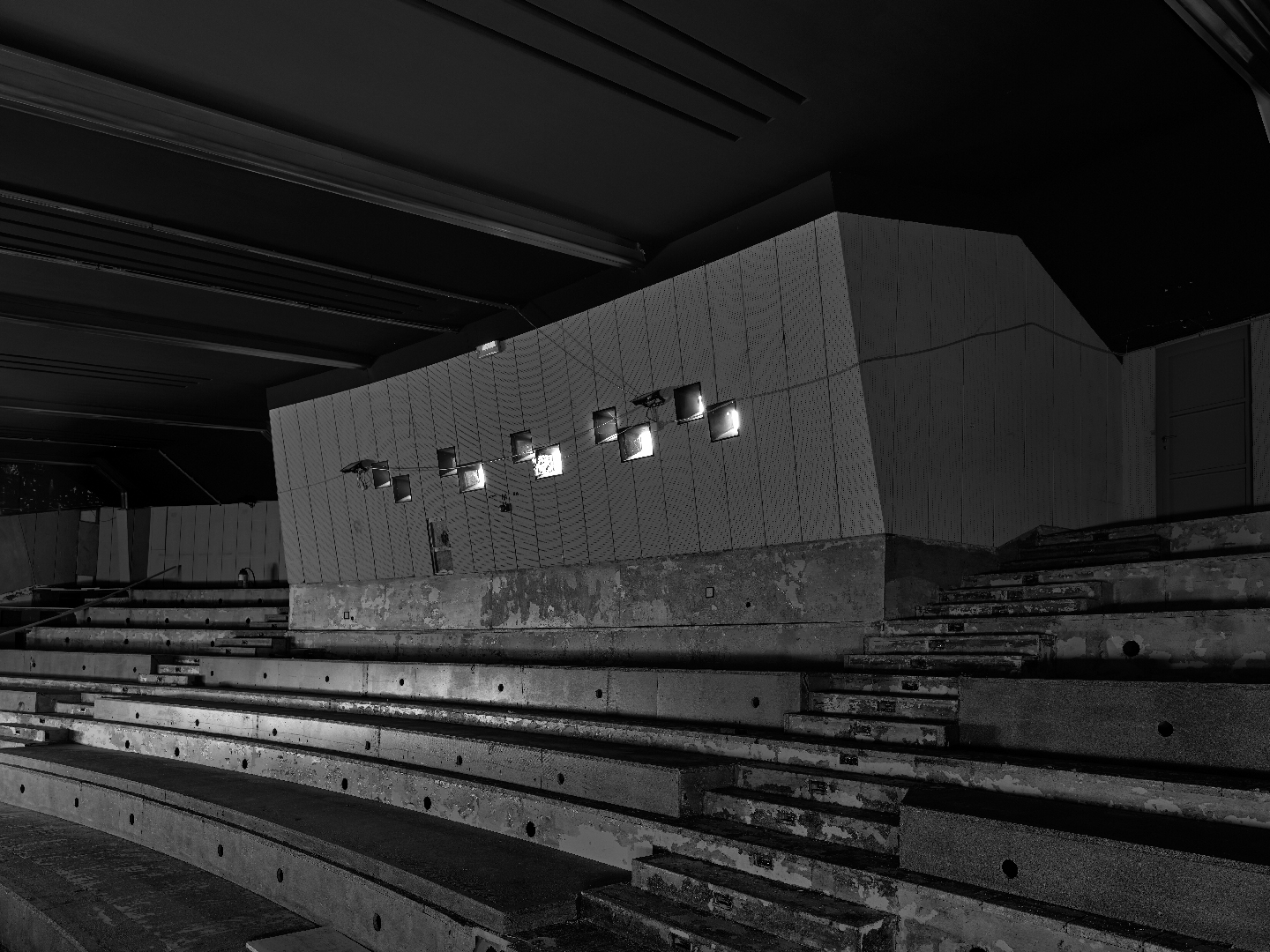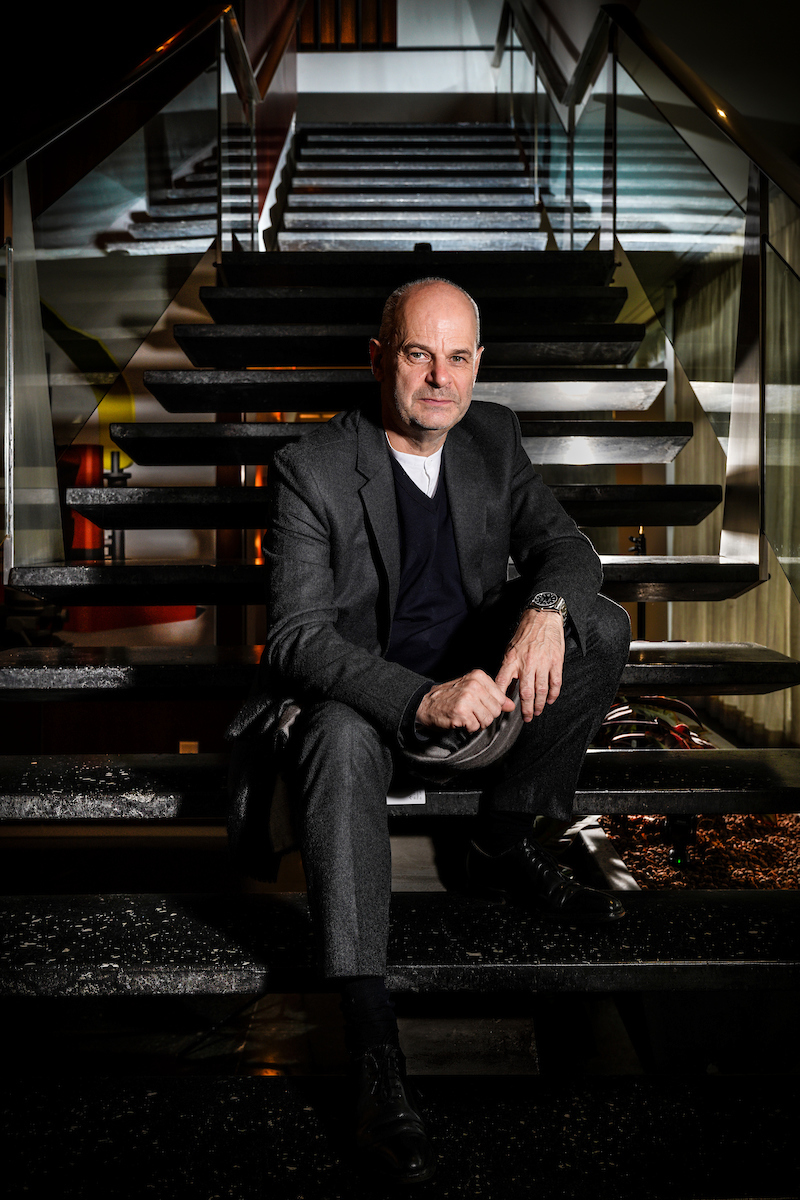
EDITORIAL
“It is according to rule that the architecture of a building should be adapted to its purpose in such a manner that this purpose shall be immediately apparent from the mere aspect of the building.” Victor Hugo, The Hunchback of Notre-Dame
The Plaza cinema in Geneva was inaugurated and opened to the public in November 1952. From the outset, the event was of historic significance. A masterpiece of modern architecture designed by Marc-Joseph Saugey, the Plaza was then, with its 1,250 seats, the largest cinema in Geneva. Its huge screen, designed by Saugey like a theatre stage, with a golden wooden frame and curtains, inaugurated the new CinemaScope projection technique in Switzerland.
Rarely have architecture and cinema been so contemporary and benefitted from such a convergence between space design and moving images, exalting Hollywood and European cinema as a modern spectacle par excellence, both solitary through the captivating power of the screen, and collective, since it is shared by a packed audience.
The Plaza cinema was indeed, from its inception, an emblem of the post-war years, those “thirty glorious years” whose spirit, rhythm and aspirations it crystallised. Doctor Zhivago directed by David Lean brought together a record 120,000+ cinemagoers there from 1965 onwards. (photo A. Kern)


“It has been written that the disappearance of the Plaza cinema would represent a serious loss for Geneva’s architectural heritage. The argument is inaccurate: the destruction of the Plaza cinema would be the loss of a unique and irreplaceable work of art for the entire European architectural heritage of the 20th century.” (photo Serge Macia, 2004)


What remains is the actual revival of the Plaza which, in accordance with its original vocation, will be twofold, combining a cultural project whose central axis remains cinema – envisaged in its contemporary technological, social and aesthetic realities – with the architectural project of an exemplary restoration.
The Board of the Plaza Foundation has therefore decided to launch an architectural competition, by invitation, for the restructuring and renovation of the cinema, as well as a brasserie and a large complex of adjacent premises and arcades, which will restore the logic of interaction between the cinema and the public space promoted by Saugey. Responsibility for the administration of this competition has been entrusted to Jacques Roulet, architect and member of the Board of the Foundation. The Plaza Foundation will be assisted by a Scientific Council, grouping together architects, heritage specialists and film professionals. We will work in conjunction with government services. The Foundation’s Board has selected and invited 15 firms, from Geneva, the rest of Switzerland and France, handpicked not only for their inventiveness and sensitivity to 1950s and 1960s architecture, but also for their experience in the restoration of modern heritage. The aim of the competition is to bring together the talent and skills of these firms to restore Saugey’s masterpiece in its original spirit and vocation, while meeting the requirements of a programme that views the cinema and its surroundings from a resolutely contemporary perspective. (photo Michel Giesbrecht, 2020)
“What we ask of cinema is the impossible, the unexpected, dreams and surprises, lyricism that erases the baseness of the soul and sends it enthusiastically to the barricades and to adventure; what we ask of cinema is what love and life deny us, that is, mystery and miracles.”
Jean-Pierre GREFF
President of the Plaza Foundation
Laureate of the Fondation pour Genève Prize 2023
(Photo Nicolas Righetti)

